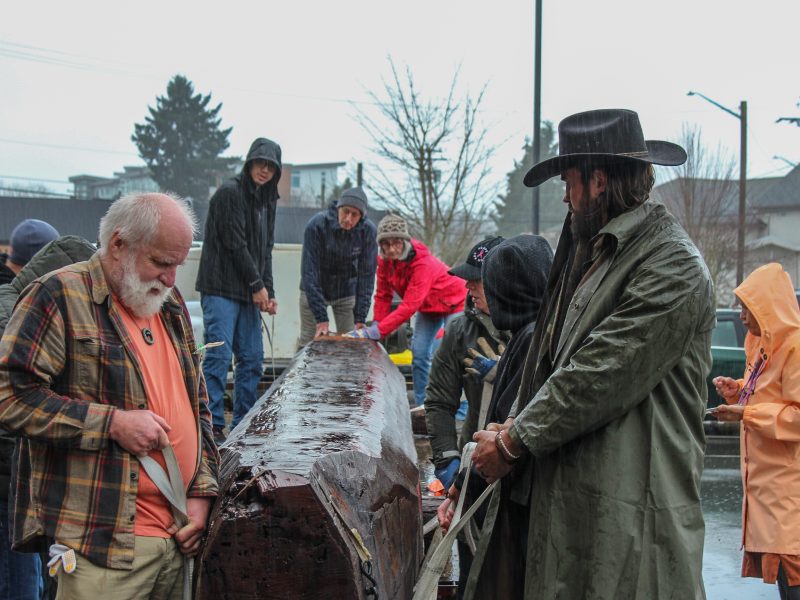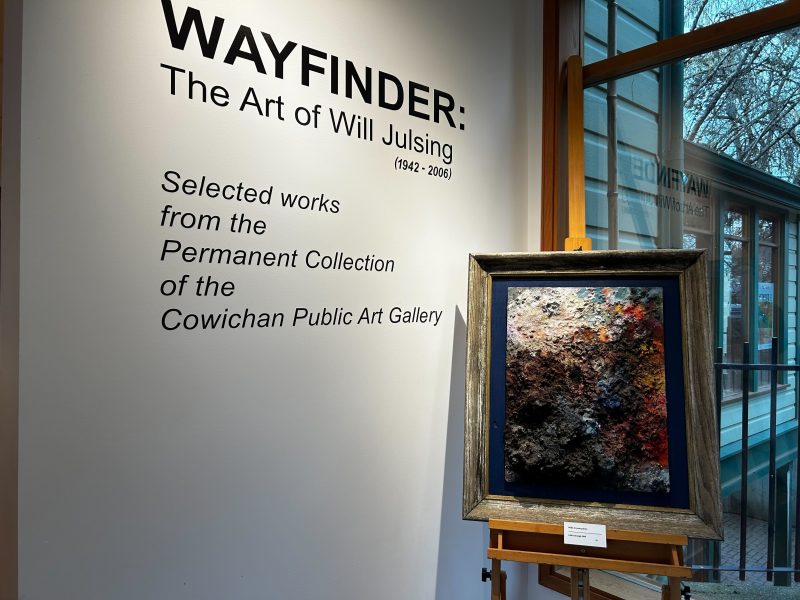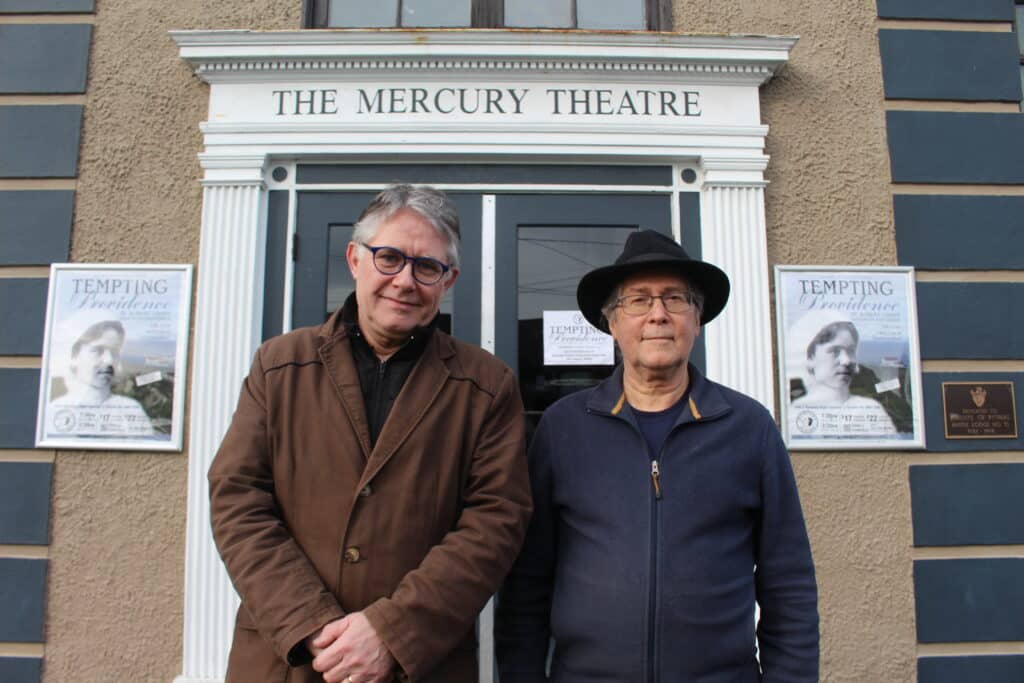
For nearly a quarter of a century, the Mercury Players Society has been the vibrant hub of community theatre in the Cowichan Valley, putting on multiple shows every year to the delight of local audiences.
But the society lost its theatre and home last month, after a leaky roof became unmanageable. An inspection found the building to be uninhabitable just weeks before opening night of a new production. The Mercury Theatre, located at 331 Brae Rd. in Duncan, has closed its doors for good after a storied history as a community space that goes back almost a hundred years.
“We’re a vagabond theatre,” says Rien Vesseur, president of the Mercury Players Society.
And the show must go on. The society quickly pivoted to move its production, Tempting Providence, to the hall at Duncan United Church. The players will continue to make do with whatever space is available until they can realize their dream of a permanent theatre space for the Mercury Players and other community groups, Vesseur says.
A theatre seeped in history
“This building was a fixture in the community,” says Jim Cleough, one of the founders and a former president of the Mercury Players Society. “It was the heart and soul of the community. It’s always been there in my memory.”
Having lived in Duncan all his life, Cleough fondly remembers the Mercury Theatre building as a community space where events like weddings, performances and dances took place. He remembers the sprung dance floor in the upstairs hall and the full service kitchen in the basement.
Cleough says the building was originally built for The Order of the Knights of Pythias, a fraternal organization and secret society that exists to this day. And an online biographical dictionary of Canadian architects says well-known local architect Douglas James worked on this building in 1930. A plaque, with the Knights of Pythias name on it, can still be found next to the entrance of the building.
As time went on, Cleough says the Knights of Pythias membership dwindled and the society could no longer afford the upkeep of the building. So, in the 1990s, the society sold the building to its next door neighbour, the Industrial Wood and Allied Workers Canada Local 180. Around the same time, Cowichan High School was in search of a theatre facility for its students.
“So the high school teacher at the time, Mike Moroz, had a conversation with the people at the [union] and they agreed to rent the space for their theatre program,” Cleough says. But he wanted his students to have opportunities to continue in theatre after graduation, and so he dreamed up a plan to make the building a home for community productions, too.
That, Cleough says, was the beginning of the Mercury Players Society. In 1999, a group of 16 people came together to create a constitution and bylaws, and decided they would support student and community theatre productions in the building.

Before long, productions involving both community members and students began to take place, Cleough says. The school eventually decided it no longer wanted to use the building, but the community continued on.
The Mercury Players had a handshake agreement with the building’s current owners, United Steelworkers Local 1-1937. This allowed them to rent the space for free, as long as the theatre group took care of managing rentals and basic upkeep.
“It was very beneficial to us because we had what we could call a home and there were no associated costs,” Cleough says. “But of course, there were costs.”
As time went on, the building aged and maintaining it became quite the task. The roof needed replacing and the old heating system stopped functioning properly. Mould began to grow and Cleough says the theatre company began to expect that they wouldn’t be in the building much longer if its owners didn’t address these major repairs.

Vesseur and Cleough aren’t optimistic that the building can be saved. Vesseur says he was told by a representative with the Steelworkers union that it might be demolished to make way for office space. The Discourse reached out to the Steelworkers union for comment but did not receive a response by the time of publication.
Now, the Mercury Players are moving on. But they hold onto the memories.
“I feel like we’ve done a pretty good job of making use of the building and growing our spirit,” Cleough says.
Bringing community together
Vesseur joined the Mercury Players close to 10 years ago, debuting as Dr. Chausable in a production of The Importance of Being Earnest.
Sitting at the Duncan Garage with coffee in hand, Vesseur and Cleough speak fondly of the many shows they’ve been involved in with the company, reminiscing about production details and relationships that they’ve formed over the years.
They name many community members who recently, and not-so-recently, contributed to the theatre by making sets and costumes or assisting with lighting and tech. They list productions that have been highlights for them so far.
Vesseur spoke of The Curious Incident of the Dog in the Night-Time, a show that he directed, which ran in 2019. He says proudly that it was the first time that play had been done in a community theatre production. Vesseur used projections, choreographed movements, surround sound and a large LED light box, designed by an engineer to change colour as the mood in the play changed.
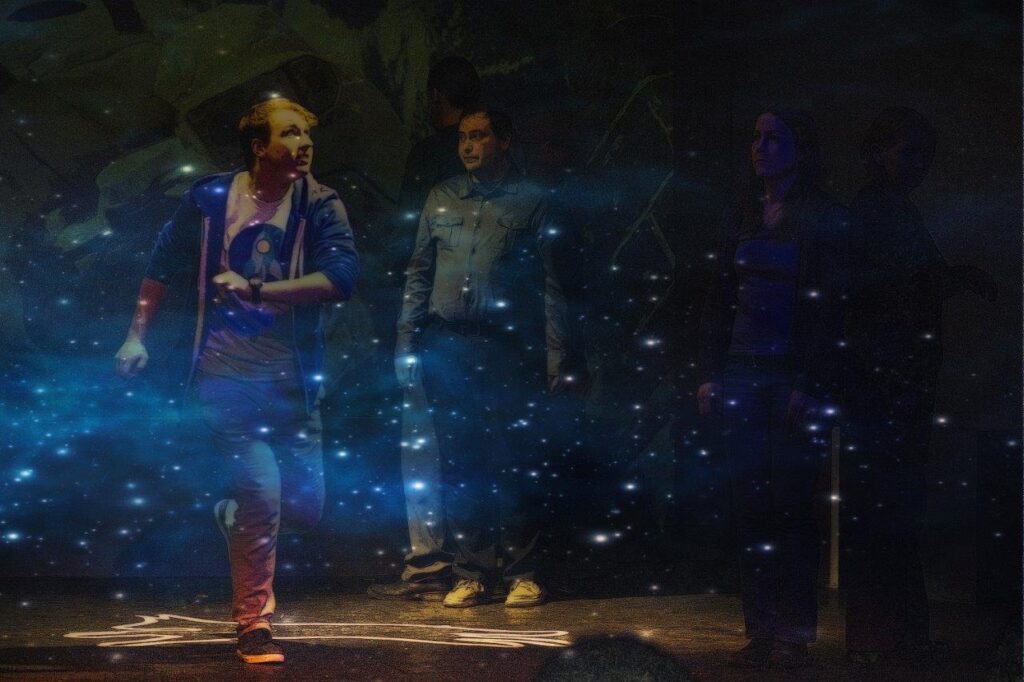
Cleough recited a line or two from The Boys Next Door, the first show he directed with the company. It featured four men with mental disabilities who lived in a group home. The Mercury Players put on a gala on the show’s opening night, and Cleough says it was well-received.
“It was really important for us to have portrayed these characters written in the script without turning them into caricatures or demeaning them in some way,” Cleough says. “It was really genuine.”
The Mercury Players put on four shows a year and Vesseur says they see audiences in the thousands over the course of the year. The company works hard to pick a diverse range of shows that portray different stories, experiences and worlds for the community.
“We pick things that have a message,” Vesseur says.
Community members can learn and experience a multitude of things through theatre, and Cleough says it gives people something “to reach out and touch and resonate with.” While some schools are considering cuts to arts programs, Cleough says community theatre can help fill that gap.
“It doesn’t provide for corporations to make money but the thing that it does is it builds people,” Cleough says.
While they’re not filling hundreds of seats in a larger venue, the Mercury Players still sell out shows for multiple nights in a row and bring the local community together by doing so. It’s something that they’ll continue to do, Vesseur says, even without a permanent home.
Read also: Creativity and community support carried the Chemainus Theatre through 2020
The search for a new home
Despite the community support, the challenge of being a roaming theatre group is quite large, Vesseur says. The last-minute relocation of Tempting Providence worked well, Vesseur says, but having a dedicated theatre space with permanent lights and storage for costumes and sets is always preferred.
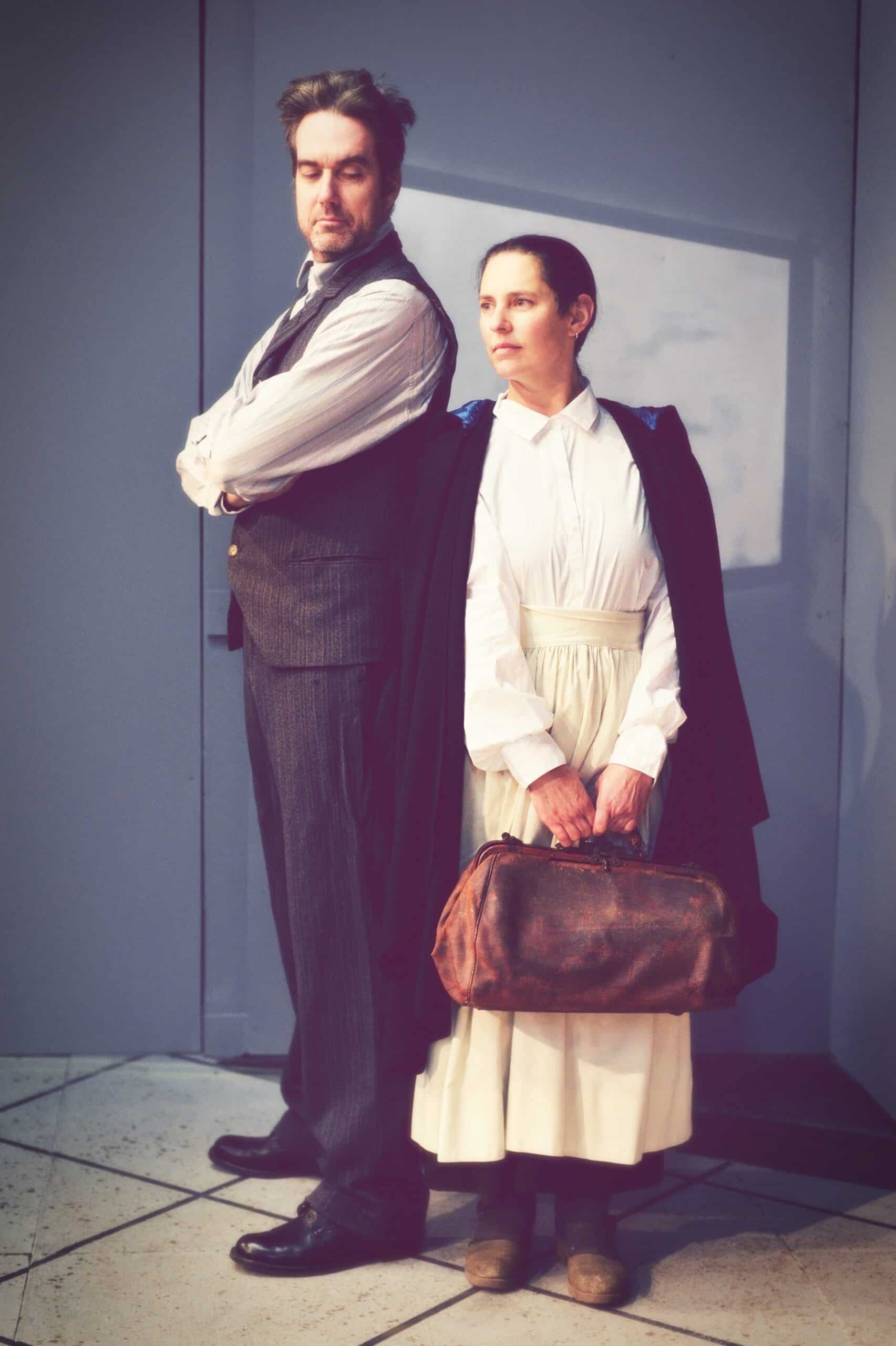

The goal, Vesseur says, is to one day find a space that suits the theatre’s needs and allows for productions as well as workshop space to design and build sets and costumes. An even larger goal would be to find a space that can host multiple community theatre companies and groups and serve as an arts hub that is affordable to use and open to the community.
But this goal isn’t possible without funding and support, Vesseur says.
The Mercury Players Society currently receives enough funding from the community and grants, such as the CVRD Arts and Culture Grants, to keep producing shows but they aren’t in a place to afford a building at the moment, Vesseur says.
Read also: From ‘third-tier venue’ to cultural hub: A decade at the Cowichan Performing Arts Centre
“We’re in a good position to do what we do. We’re not in any trouble that way,” Vesseur says. “But to be able to keep and maintain a building, that’s a different ballgame.”
While Vesseur has tried applying for other grants, such as the province’s Community Gaming Grants, he says the applications have been unsuccessful. What’s more, successful grant applications take a lot of experience, time and resources.
“I tried three years in a row and did not succeed to get a penny out of it,” Vesseur says.
The society is saving money to put towards a new home but the prospects of them having enough for something in the near future, without additional support, are slim, Vesseur says. So the next step for the Mercury Players Society is to speak with the CVRD and see if the district is willing and able to provide a space that works for the theatre. He hopes a space similar to the HUB at Cowichan Station can one day be formed for community theatre in the Cowichan Valley.
In the meantime, the Mercury Players will keep the community theatre dream alive.
“We’ll just continue producing four plays a year in whatever venue we can get,” Vesseur says.

